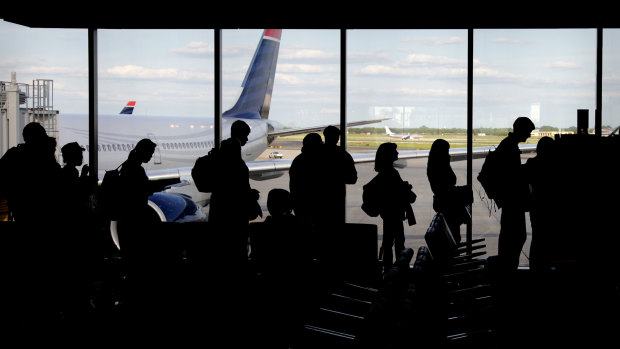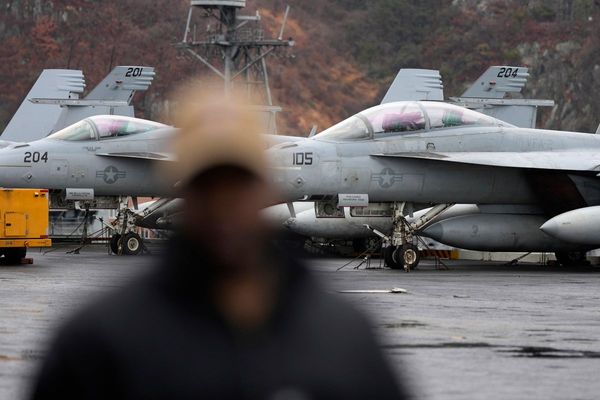
Since the spring, the Federal Aviation Administration (FAA) has been allowing airlines to fly fewer flights than it normally requires to go out of the major transportation hubs of New York City and Washington, D.C.
Amid a staffing crisis across the entire airline industry and a dearth of air-traffic controllers in particular, the government agency temporarily suspended its minimum flight requirements for the busy summer travel period in order to give airlines time to catch up and address the staffing issue .
Don't Miss: Travel chaos is so bad airlines are asking the government for help
While the suspension was originally intended to end on September 15, a trade group representing the country's biggest airlines requested that it be extended as the situation has "not meaningfully improved." Extending, it argued, would "minimize disruptions and provide greater predictability for airlines and customers."

Getty Images
The FAA just extended airlines' minimum flight limits
After several days of deliberations (the Airlines For America letter signed by carriers like Delta (DAL) -) and United Airlines (UAL) -) was submitted on August 7), the FAA has agreed to extend the cuts to minimum flights requirements until October 28.
More Travel:
- A new travel term is taking over the internet (and reaching airlines and hotels)
- The 10 best airline stocks to buy now
- Airlines see a new kind of traveler at the front of the plane
"The FAA will allow airlines flexibility on slot usage requirements for airports in the New York City area through Oct. 28, 2023," the agency said in a statement. "The agency continues to expect that airlines will operate larger aircraft to transport more passengers and make sure passengers are fully informed about any possible disruptions."
Larger carriers, in particular, have been pushing for the extension because they can lose guaranteed slots at busy airports if they do not use them as other carriers take advantage of the chance to swoop in. Delta and United had previously promised to return 10% of the flights they cut. The extension gives them more time and leeway to do so.
Struggling with understaffing, airlines continue to slash flights
While frustrating to passengers who might feel like they're not able to find as many flights during an already busy period, the extension is necessary because most airlines lack the staff needed to run these flights. Rehiring the tens of thousands workers laid off or furloughed during the pandemic has proven difficult as many went into other industries and airlines now have to compete with higher wages and better benefits.
This all comes on top of sky-high demand driven by travelers taking trips put off for several years due to the pandemic.
"We believe the industry capacity aspirations for 2023 and beyond are simply unachievable," United CEO Scott Kirby said during a January 2023 earnings call. "That means the system simply can't handle the volume today, much less the anticipated growth. Like it or not, that’s just the new reality and the new math for all airlines."
United has already cut down from 410 to 395 daily flights in or out of Newark International Airport while Delta also slashed approximately 6% of its flights out of New York and D.C. in August 2023.
The FAA also said that it is "working closely with NATCA to implement a long-term solution to resolve ongoing low staffing levels."







